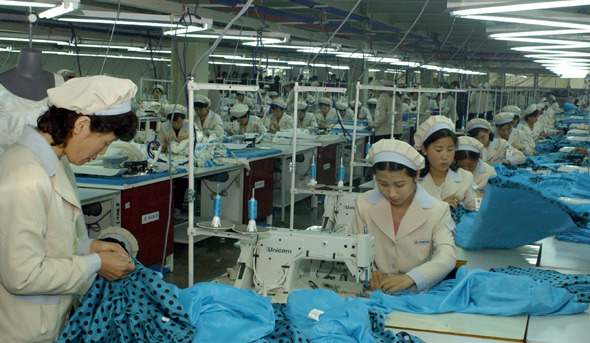 |
North Korean workers sew products at the Kaesong Industrial Complex. (Yonhap News)
|
Saturday, February 28, 2015
S. Korea-China FTA could change the game for Kaesong Industrial Complex
Subscribe to:
Post Comments (Atom)
 |
North Korean workers sew products at the Kaesong Industrial Complex. (Yonhap News)
|
No comments:
Post a Comment